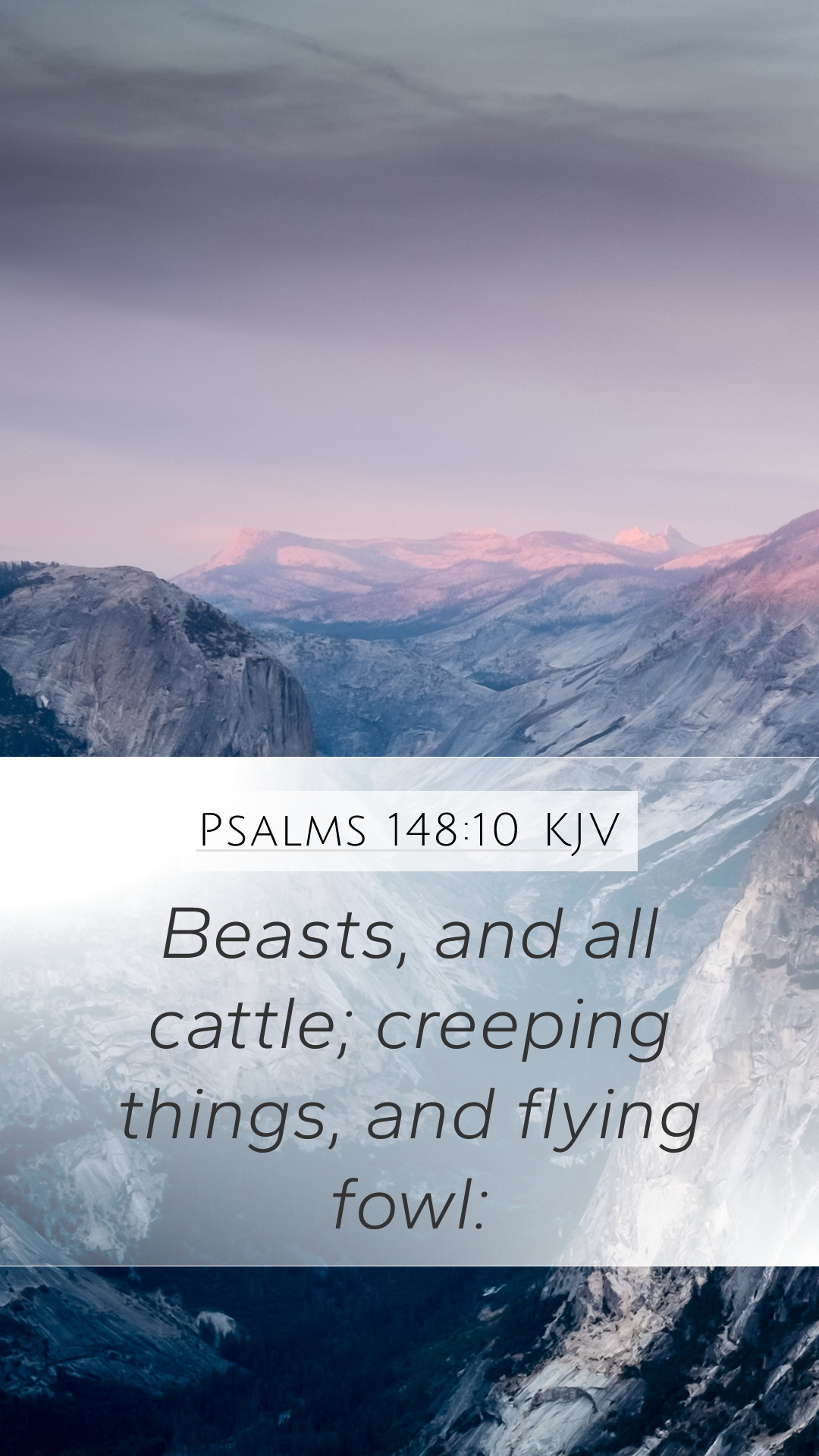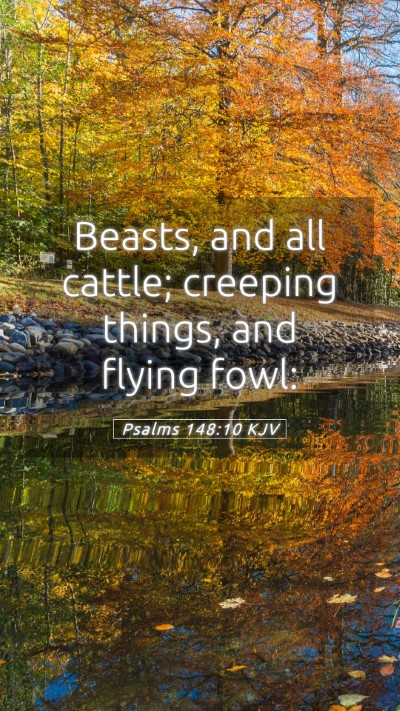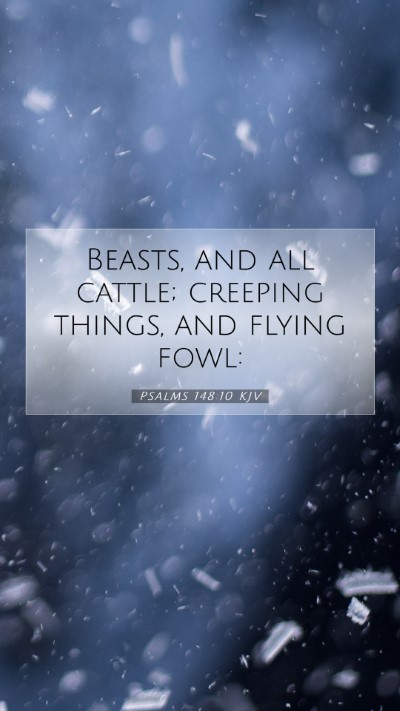Psalms 148:10 - Bible Verse Meaning and Commentary
Psalms 148:10 states: "Wild animals and all cattle, creeping things and flying birds!" This verse is part of a grand doxology that calls on all of creation to praise the Lord. Here, the psalmist emphasizes the variety of God's creation and the integral role each creature plays in honoring Him.
Overview of Psalms 148
The entire chapter of Psalms 148 is an awe-inspiring call to worship. It commences from the heavens, summoning not just humans, but all realms of existence—including celestial beings, celestial bodies, and earthly creatures—to offer praise to God. Verse 10 specifically highlights animals and birds, showcasing both domestic and wild aspects of creation.
Insights from Public Domain Commentaries
- Matthew Henry: Henry notes that all creatures matter in the praise of God. He suggests that the natural world, from the majestic beasts to the small insects, collectively contribute to the glory of creation, serving as instruments of divine praise. This idea elevates the mundane aspects of life into acts of worship.
- Albert Barnes: Barnes interprets verse 10 in the context of God's sovereignty over all creation. He emphasizes that God is the creator and sustainer of all things, and by calling upon animals and birds to praise Him, it reminds humanity of their responsibility to acknowledge God's dominion and majesty in their lives.
- Adam Clarke: Clarke elaborates on the significance of all living creatures in expressing praise. He recognizes that the verse reflects a deeper theological principle: that everything is made with purpose, and their existence is tied to glorifying their Creator. Clarke's exposition centers on the interconnectedness of life and the continuous worship of God through creation.
Explanation and Meaning of the Verse
The message in Psalms 148:10 is clear: every aspect of creation, regardless of its size or nature, plays a role in worshiping God. This verse serves as a reminder to humanity that we are not above the created order, but rather a part of it. Here are some key understandings:
- Inclusivity of Praise: The call to praise includes all forms of life, challenging the human tendency to consider our species as superior. This equality emphasizes that all creatures are deserving of reverence.
- Creation’s Testimony: Nature itself bears witness to God's glory. By reflecting on the beauty and complexity of animals and birds, believers are inspired to recognize the Creator through His creations.
- Ecological Awareness: The verse encourages a sense of stewardship over the earth. By praising God through the very essence of His creations, believers are reminded of their duty to protect and nurture the world around them.
Application in Daily Life
Incorporating the meaning of Psalms 148:10 into daily life involves more than just acknowledgment; it requires a lifestyle of reverence to God through observation and protection of His creation. Here’s how one can apply this verse:
- Nature Appreciation: Take time to appreciate the wildlife and greenery in your surroundings. Reflect on how they contribute to the beauty of God's creation.
- Environmental Stewardship: Participate in conservation efforts or local initiatives that protect animal habitats and promote ecological balance.
- Worship Through Nature: Use nature as a backdrop for worship. When experiencing the majesty of creation, let it elevate your spirit to give praise to God.
Related Bible Cross References
- Genesis 1:20-25: Describes God creating living creatures and the command that they reproduce.
- Psalm 104:24-25: A meditation on the magnificent diversity of God’s creation.
- Luke 19:40: Jesus said, "If these should hold their peace, the stones would immediately cry out," illustrating that all creation praises God.
Concluding Thoughts
Psalms 148:10 serves as a powerful reminder of the role all creatures play in the divine symphony of praise. Reading and reflecting on this verse can deepen one's Bible verse understanding and inspire believers to engage in Bible study insights that highlight the interconnectedness of life and our responsibility to honor God through creation.


